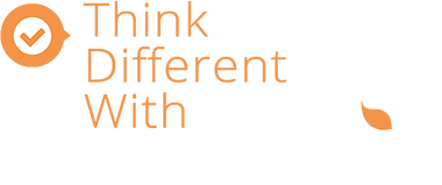
"Financial literacy is an issue that should command our attention because many Americans are not adequately organizing finances for their education, healthcare and retirement" ~Ron Lewis
Plan for Health Care Costs During Retirement
When you retire, some of your expenses may go down – but health care is not likely to be one of them. In fact, your health care costs during retirement may well increase, so you may want to plan for these costs well before you leave the work force.
How much can you expect to spend on health care during your retirement years? Consider these statistics:
• A 65-year-old couple who retired in 2016 will need about $288,000 (in today’s dollars) during retirement just to pay Medicare Parts B, D and supplemental insurance, according to HealthView Services, a company that provides health care cost projections for financial services firms. If out-of-pocket costs such as deductibles, co-pays, hearing, vision and dental are included, the lifetime figure rises to about $377,000 in today’s dollars.
• The national average for a private room in a nursing home is more than $92,000 per year, according to a survey by Genworth, an insurance company. And the services of a home health aide cost more than $45,000 per year, according to the same survey. Medicare typically pays very little of these costs.
To cope with these expenses, you’ll want to integrate them into your overall retirement saving and investing strategies. Knowing the size of a potential health care burden may help motivate you to put as much as you can afford into your 401(k), IRA and other retirement accounts. Even when you’re retired, part of your portfolio should be devoted to growth-oriented investments, such as stocks, to help pay for rising health care costs. It’s true that stocks will always fluctuate, and you don’t want to be forced to sell them when their price is down. However, you can help yourself avoid this problem by also owning a good mix of other investments, such as investment-grade corporate bonds, government securities and certificates of deposit (CDs), whose value may be more stable than that of stocks.
Another way to help defray the costs of health care is to work part-time a few years after you had originally planned to retire. This added income can help you delay tapping into your IRA and 401(k), thus giving these accounts a chance to potentially grow further. Plus, you may be able to put off taking Social Security, and the longer you wait until you start collecting benefits, the bigger your checks will be, at least until they top out at age 70
These suggestions may help you meet many of your typical medical costs during retirement, but what about long-term care expenses, such as an extended stay in a nursing home or the need for home health care assistance? As mentioned above, these costs can be enormous. Fortunately, the financial marketplace does provide some cost-effective solutions for long-term care – solutions that may help you avoid “self-insuring.” A financial professional can provide you with some recommendations in this area.
It’s probably unavoidable that your health care costs will rise, and possibly keep rising, when you’re retired. But by being aware of these expenses years in advance, and by following a diligent saving and investment strategy – one that may also include a long-term care component – you can improve your “financial fitness” for dealing with health care costs.
-This article was written by Edward Jones
Thanks to George Rambow ([email protected]) who is a Financial Advisor with Edward Jones Investments for sharing this article to promote awareness, education and guidance to our readers.
Let us explore a wellness 'plan of action' that’s right for your company; we will assist with each step of building the concept to implementation; we work hands-on to find solutions to the following questions:
Why do we need a wellness plan?
How ‘well’ is our employee population?
How do we increase employee engagement?
Have we asked our employees for their input?
How were healthcare cost affected by our employee's health issues last year?
What were our overall absenteeism rates? And, how did this affect productivity?
Put our imagination, passion, innovation and creation to work for your company today - Call Bill Johnston at 817-546-2953 or via email at [email protected]
We Help You Engage Your Employees - Meliora - In Pursuit of Better


 RSS Feed
RSS Feed
